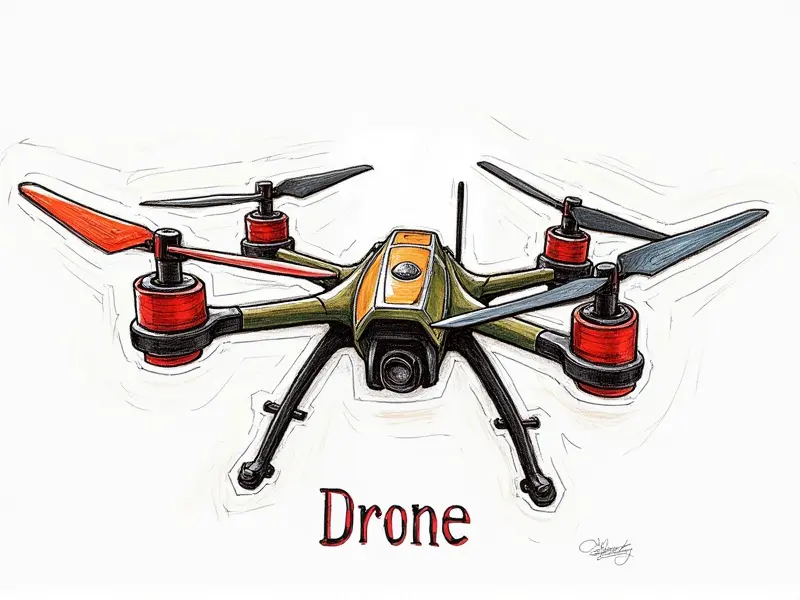Do I need a license to fly FPV?

Do You Need a License for FPV Racing?
Flying drones in the first-person view (FPV) has become increasingly popular among enthusiasts and racing communities. However, one of the most common questions asked by newcomers is whether they need a license to fly FPV drones legally. The answer isn't straightforward as it depends on several factors including your location, the type of drone you're using, and the intended use.
Legal Requirements for Flying FPV Drones
The legal requirements for flying FPV drones vary significantly from one country to another. In many jurisdictions, there are specific regulations that govern the operation of unmanned aerial vehicles (UAVs). For instance, in the United States, the Federal Aviation Administration (FAA) has established a set of rules and guidelines under Part 107 of the Code of Federal Regulations.
These rules cover various aspects such as registration requirements, airspace restrictions, operational limitations, and pilot training. It's crucial to familiarize yourself with these regulations before flying an FPV drone in any location within the United States.
Is an FPV Drone License Necessary?
The necessity of obtaining a license for FPV racing depends largely on local laws and specific use cases. In some regions, such as the European Union, there are more relaxed regulations compared to other parts of the world like the U.S., where compliance with FAA rules is mandatory.
For recreational flyers who intend to fly drones purely for fun or personal enjoyment, certain countries might not require a formal license if you adhere strictly to local guidelines and restrictions. However, professional operators, racers, and those involved in commercial activities often need additional certifications or permits.
Understanding FPV Drone Permits
The concept of FPV drone permits can be confusing for many users who are new to the hobby. Essentially, a permit is an official document issued by aviation authorities that grants permission to operate drones under specified conditions. In some cases, obtaining such permits involves passing theoretical and practical exams related to drone operation safety.
For example, in Australia, the Civil Aviation Safety Authority (CASA) mandates certain qualifications for remote pilots operating beyond visual line of sight (BVLOS), which is often required for FPV racing competitions. Similarly, in Canada, Transport Canada has introduced specific rules and training requirements under Part 906.
Navigating FPV Drone Licensing Rules
Given the diversity of regulations across different regions, navigating FPV drone licensing rules can be challenging. It's important to consult official aviation websites or seek professional advice from local experts who specialize in UAV regulation compliance.
- Check Local Regulations: Start by visiting your country’s aviation authority website for the most up-to-date information on drone regulations.
- Contact Your Local Drone Community: Engaging with established FPV racing groups or forums can provide valuable insights and firsthand experiences from seasoned pilots.
- Attend Workshops and Seminars: Many organizations offer workshops and seminars that cover the legal aspects of flying drones, including FPV racing.
FPV Drone Laws and Regulations
The laws governing FPV drone operations are continually evolving as technology advances and more applications emerge. In addition to general aviation rules, specific regulations for FPV activities may address issues such as:
- No-Fly Zones: Areas like military bases, airports, national parks, and other restricted airspace.
- Privacy Concerns: Rules regarding the use of cameras or recording devices on drones to protect individual privacy rights.
- Data Security: Regulations concerning data collection and transmission during drone flights.
The Need for Licensing in FPV Racing
While licensing may not be universally required, participating in organized FPV racing events often necessitates some form of certification or membership. These certifications typically confirm that participants have undergone necessary training and understand the safety protocols associated with competitive flying.
Organizations like Drone Racing League (DRL) and MultiGP enforce their own set of rules which include requirements for pilot proficiency, equipment standards, and adherence to local laws. Joining these leagues usually involves completing specific courses or passing assessments designed to ensure all racers meet the minimum safety criteria.
Requirements to Fly FPV Legally
To fly an FPV drone legally, you must comply with both national aviation regulations as well as any additional requirements set forth by local municipalities. Here are some key steps:
- Register Your Drone: In many countries, registering your UAV is mandatory before flying it.
- Obtain Necessary Permits: If required, apply for and obtain any special permits needed to fly in specific areas or under particular conditions.
- Familiarize Yourself with Local Laws: Stay informed about changes in legislation that might affect your ability to operate FPV drones.
Flying FPV: Do Licenses Matter?
The question of whether licenses matter when flying FPV largely hinges on the context and purpose of flight. For casual users, adhering strictly to local guidelines without formal certification may suffice in many jurisdictions. However, for those engaging in competitive racing or commercial operations, obtaining proper licensing is not just advisable but often mandatory.
Ignoring these requirements could result in hefty fines, legal complications, or even suspension from participating in sanctioned events.
Legalities of FPV Drone Flight
The legal landscape surrounding FPV drone flight continues to evolve as technology advances and new applications emerge. As a responsible pilot, staying informed about current regulations is essential not only for compliance but also for ensuring the safety of yourself and others around you.
Understanding FPV Drone Legalities Today
In conclusion, understanding the legal requirements for flying FPV drones today involves recognizing that these rules vary widely depending on geographical location and intended use. While some regions have more lenient regulations for recreational flyers, professional operators often face stricter guidelines and may need additional certifications.
By staying informed through official channels, engaging with local communities, and participating in relevant training programs, you can ensure compliance while enjoying the exciting world of FPV drone racing safely and legally.

